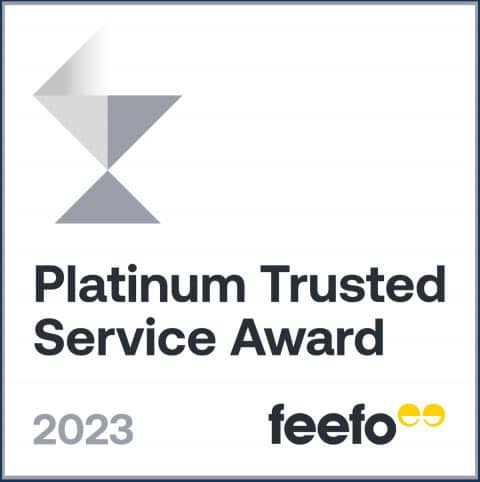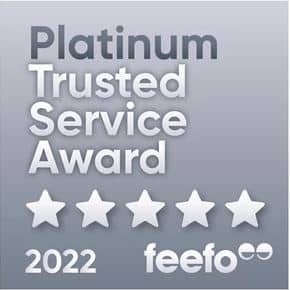IN THIS GUIDE
Apply for a business loan and access competitive rates with Savvy
Everyone knows that you need to spend money to make money as a business. Whether you’re looking at renovating your commercial space, buying more inventory, purchasing a vehicle or equipment or even simply boosting your cashflow, business loans can help you do just that. That’s where Savvy comes in handy.
We’re partnered with a wide panel of reputable Australian lenders who can offer a range of finance products to suit businesses of all sizes, from small operations to large corporations. Get a quote with us today and speak with one of our commercial lending experts to find out more!
Compare lenders
Compare car loans in Australia from various lenders, with interest rates that vary depending on the borrower's credit score and other factors.
| Lender | Interest rate (p.a.) | Comparison rate (p.a.) | Loan amount (AUD) |
|---|---|---|---|
| Plenti | 6.57% - 24.09% | 6.57 - 26.28% | $5,000 - $65,000 |
| Now Finance | 6.75% - 26.95% | 6.75% - 6.95% | $5,000 - $50,000 |
| Liberty | 7.24% - 19.99% | 7.24% - 21.49% | $5,000 - $80,000 |
| Money Place | 6.52% - 19.19% | 6.95% - 20.77% | $5,000 - $80,000 |
| Finance One | 6.52% - 19.19% | 6.95% - 20.77% | $8,000 - $100,000 |
| Resimac | 6.52% - 19.19% | 6.95% - 20.77% | $8,000 - $100,000 |
Brands you can compare







Why compare business loans with Savvy?
It won't cost you a cent to compare a range of business loans through Savvy, enabling you to come back at any time.
You can compare business loan offers, through a range of trusted Australian lenders, giving you more confidence in the process.
You can fill out our simple online form to generate business finance quotes tailored to your business' needs in minutes.
The types of business finance
WHAT OUR CUSTOMERS SAY ABOUT THEIR FINANCE EXPERIENCE
WHAT OUR CUSTOMERS ARE SAYING


Savvy is rated 4.9 for customer satisfaction by 93 customers.
What are business loans and how do they work?
As the name suggests, business loans are a type of finance that allow you to borrow funds for your business. They can be used for a variety of purposes, from buying valuable assets to adding cash to your commercial reserves and everything in between.
Depending on the type of loan, you may be able to take as long as seven years or as little as a few months to repay your debt. You'll pay it off in weekly, fortnightly or monthly instalments, with all your payments made with interest and fees until your outstanding balance hits $0.
How much will my business be able to borrow?
As you can see from the different types of loans listed above, the form of finance you choose will help dictate the amount you can borrow. However, each business is different when it comes to its borrowing power. The key factors that can impact yours include:
- Your business’ revenue and expenses: the higher your business’ turnover, the more it’ll likely be able to borrow.
- Your business’ assets: owning property in particular can boost your business’ borrowing power significantly.
- Your business’ liabilities: of course, any outstanding debts or loans will eat into your available funds.
- Your business’ credit history: a strong track record of managing debts and similar loans in the past will help boost the amount you’re able to borrow.
- The value of your collateral (if secured): your collateral will need to be valuable enough to cover your loan, so this will also play a role in setting your business’ borrowing power.
You’ll be able to speak with one of our experienced consultants to find out how much your business can borrow through one of our trusted lending partners.
How to compare business loans
Before all else, have a clear idea of what you want to get out of the loan. For example, you probably won’t get an unsecured line of credit for a new vehicle purchase.
Pay close attention to the interest and fees. Even though some or all of these may be tax-deductible (more on that in a bit), you’ll still have to pay them as you go before they can be claimed.
How long do you need to pay off your loan? Loans give you structured repayments over as many as five (unsecured) or 30 (secured) years, while lines of credit will be different.
Your choice of finance will be dictated in large part by the amount you need. You may only need an unsecured loan for a small sum, but when it gets into the millions, you’ll need security.
There’s no use applying for a loan you (or the asset you’re buying) aren’t eligible for. Ensure you meet the criteria related to credit scores, trading time, assets and liabilities before you apply.
You can apply with Savvy and have all the detailed comparisons done for you by one of our experienced consultants. It’s really as simple as that.
The factors impacting your business loan’s interest rate
How long you’ve been in business
Businesses with 12 months or more under their belts are generally seen as less risky than startups when it comes to loan applications, so the longer you’ve been running, the lower your rate may be.
How much it’s turning over
Successful business? Happy lender. Showing your track record of profits will also help you secure a lower rate, as consistently positive turnover can point to a lowered risk of default.
Secured or unsecured
As we discussed earlier, adding a business asset as collateral to your loan will reduce the interest rate offered, as it adds an extra layer of security to the agreement.
Credit score and track record with past loans
Lenders will look for a track record of success when it comes to borrowing and managing debts in the past. Having a poor score, whether that be due to defaults, dishonours or late payments, will impact your rate.
The assets in your business’ (and your) name
Being asset-backed (that is, owning either commercial or residential property) is one of the best ways to reduce your interest rate. Even owning vehicles, equipment and other assets can help, too.
What can I claim as a tax deduction on my business loan?
When you take out a business loan, there are a few costs that may be able to be claimed as tax deductions. These are:
- Interest: the interest you pay on your loan is claimable as a tax deduction.
- Fees: like interest, charges like establishment and ongoing fees can often be claimed on tax.
These can be claimed up to the business portion of your loan or asset’s usage. For example, if you have a chattel mortgage for a car that you use for personal purposes 20% of the time, you can only claim up to 80% of the interest and fees.
However, you won’t be able to claim the full payment. The principal portion of your loan (the amount you borrowed) isn’t tax-deductible and must be paid in full.
It’s also essential to note that different businesses will have different needs when it comes to tax. You should discuss what you can and can’t claim in your specific situation with your accountant or a tax professional.
How is a business loan different from a lease?
When your business needs access to a vehicle or piece of equipment, the other option you’ll have instead of buying it is leasing it. There are two different types of lease: finance leases and operating leases. You can see how they differ from chattel mortgages in the table below:
| Finance lease | Operating lease | Chattel mortgage | |
|---|---|---|---|
| Ownership? | Leasing company (until residual is paid) | Leasing company at all times | Business at all times |
| Term lengths? | One to five years | One to five years | One to seven years |
| Residual? | Mandatory at the end of the term | Not included | Optional at the end of the term |
| Options at the end of the term? | Buy the asset Sell/trade in the asset Refinance the residual and extend the lease | Return the asset to your leasing company | Anything you like (as you own the asset) |
| Assets you can finance? | Commercial and non-commercial vehicles and equipment | Road vehicles | Commercial and non-commercial vehicles and equipment |
| Usage? | At least 51% commercial | At least 51% commercial | At least 51% commercial |
| Tax deductions by you? | Lease payment and other on-road costs (equivalent to your business usage) | Lease payment and other on-road costs (equivalent to your business usage) | Loan interest, GST on the asset purchase, depreciation and other on-road costs (equivalent to your business usage) |
| Tax deductions by your finance company? | GST on the asset purchase and depreciation | GST on the asset purchase and depreciation | N/A |
Applying for a business loan with Savvy
First of all, fill out our simple online application form. This will tell us details like what you want to buy, how much you need and your business’ structure, revenue and trading time.
We may require further information in some cases to verify parts of your application. If this is the case, we’ll ask you to submit additional documents via our online portal.
Once we get all the info we need, we’ll get to work comparing options from our lender panel. A member of our consultant team will give you a call to talk about your options.
After you give us the all-clear, we’ll get to work preparing your application to submit to your lender. This can be formally approved as soon as within 24 hours.
Once you receive approval, you’ll be sent all the required contracts and forms you’ll need to sign, which can be done electronically. We’ll handle settlement and the asset can be yours before you know it!
Common business loan questions answered
Are startup businesses able to be approved for a loan?
Yes – we work with lenders who can approve loan applications from businesses with ABNs as new as one day old. Provided you can meet your lender’s eligibility criteria, we’ll work with you to find the best loan deal available among our flexible panel, regardless of whether you have no collateral or have already purchased assets for your business.
How quickly can my loan be approved through Savvy?
That depends on the type of loan you’re applying for and the amount you need. Large secured loans can sometimes take a few weeks to process, while chattel mortgages can be approved, funded and settled in as little as 48 hours in some cases. If you’re applying for an unsecured loan, though, this could be trimmed to 24 hours or even the same day.
Other factors can impact the speed of processing, such as the strength of your profile, when you apply (the earlier in the day and week, the better) and whether you’re able to give your lender all the information and documents they need in a timely manner.
What is a comparison rate on a business loan?
A comparison rate is a rate that includes both your interest and your loan’s fixed fees, such as establishment and ongoing charges. These are helpful to consider when comparing your options, as they’ll give you a clearer indication of how much your business loan will cost overall. However, extra conditional costs like late or early payment fees won’t be included.
Will I be able to pay off my business loan early?
Many lenders allow you to pay off your debt ahead of schedule, especially for business loans and lines of credit. However, chattel mortgages often come with early payment fees. Always read through your loan contract before you sign on the dotted line, so you’ll know exactly what flexibility you have.
How does refinancing a business loan work?
Essentially, refinancing your loan means you’re taking out a new loan to pay off (and therefore replace) your old one. You might do this to lock in a lower interest rate, extend your loan term or increase the size of your loan. Early repayment fees will apply if your loan agreement has them.
Can my business still get a loan with bad credit?
Yes – Savvy is partnered with a wide and diverse range of lenders, including those who specialise in working with customers who’ve struggled with their credit in the past. Get a free, no-obligation quote with us today!
What is invoice finance?
Invoice finance is another type of business finance centred around the value of outstanding invoices that are owed to your business. If your business deals in sending out invoices, there are two types of finance you can choose from:
- Invoice factoring: your business sells your outstanding invoices for up to 95% of their value to a third party who then collects the debts from clients. Once received, you’ll be paid the remaining balance minus service charges.
- Invoice discounting: your business essentially borrows against the value of your invoices owed, which may be up to 85%. The invoices remain the business’ responsibility, so the remaining balance can be released once they’re paid.
What is supply chain finance?
Supply chain finance (otherwise known as reverse factoring or supplier financing) is a type of business financing involving three parties: you, your supplier and your financier. Here’s what that looks like:
- Your business purchases product (goods or services) from your supplier.
- Your supplier signs off on the purchase and sends the required product to you, alongside an invoice.
- You sign off on the invoice and pledge to repay the amount directly to the financier by its due date.
- Your supplier sells the invoice to the financier, who pays it immediately at a discounted rate (often the full amount minus service fees).
- You pay the full amount to the financier over your repayment period before its due date.
What is floorplan finance?
Floorplan finance, also known as inventory finance, is another type of finance that’s different from a standard business loan. It’s a three-way arrangement between your business, your lender and your supplier that works like this:
- Your business applies to a lender to gain access to funds through a line of credit and, if approved, the lender will forward these directly to your supplier.
- Once your supplier receives the funds it needs to cover your business’ order, it can organise a shipment of goods to be delivered to you.
- After your business receives its supplies, it can sell them and use part of the revenue generated from sales to repay the lender.
What is rent roll finance?
Rent roll finance is a special kind of loan that helps you purchase a property that still has tenants in it. A rent roll is a document used in the real estate industry that represents a property (or group of properties) and the various tenants associated with it.
When you purchase a rent roll that’s for sale, you’re taking on all the responsibilities of managing the properties involved and all the tenants associated with them. Effectively, you’re purchasing a portion of a real estate business. It’s a big process and there’s plenty involved with such a purchase.
Can I take out a loan to pay off my business’ tax debt?
Yes – unsecured and secured business loans can be used for a wide range of purposes, including clearing an outstanding tax debt. However, it’s important to note that not all lenders may approve applications for loans to cover tax debts. Your Savvy consultant will connect you with the most suitable lender whose criteria you meet as part of the application process.
What is a personal guarantee?
A personal guarantee is a commitment by you (the business owner) to repay the loan if your business becomes unable to complete its repayments. This can either be a secured guarantee, which commits your personal assets to the loan, or unsecured. Some lenders will require this as part of the process, especially for startups and small businesses, but this won’t always be the case.














































